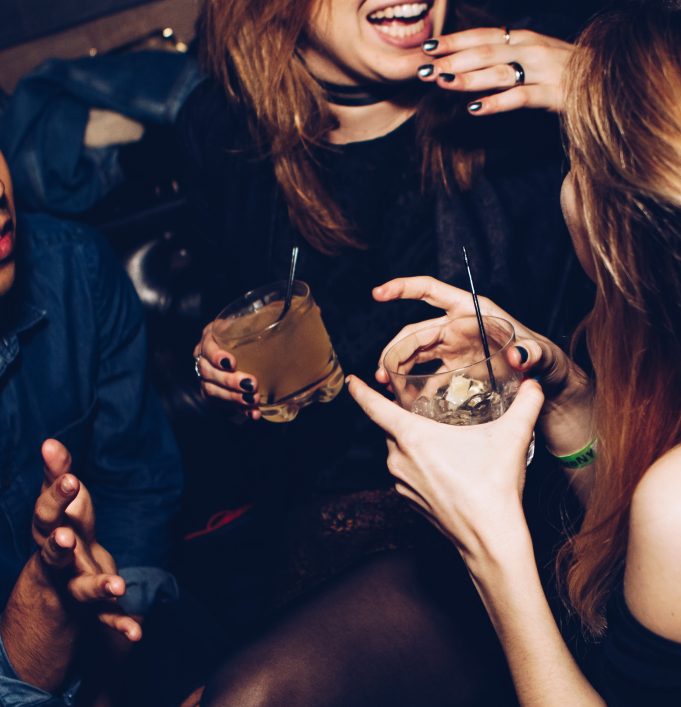The COVID-19 pandemic brought many challenges to the UK, leading to changes in daily life. As people faced lockdowns, social distancing, and financial worries, they looked for ways to cope. One coping method that stood out was alcohol consumption.
We examine how the pandemic has affected drinking habits in the UK. We’ll explore the connection between the pandemic and alcohol use.
Binge Drinking: Latest Stats and Trends in the UK
When we ask,” Are more people drinking following COVID, we mean unhealthy drinking patterns. Binge drinking is defined as heavy episodic drinking. It is a form of unhealthy alcohol consumption that raises an individual’s blood alcohol concentration (BAC) to 0.08% or above, legally classifying them as intoxicated. Binge drinking involves the intake of five or more drinks for men or at least four drinks for women during a single event.
Binge drinking can cause severe problems that can lead to significant health consequences. Unfortunately, the latest data shows binge drinking has increased significantly since the pandemic. Here’s what you need to know.
Binge drinking increased by 19% globally, with the most significant increases in countries like Australia, the UK, and Canada. A fact sheet from Alcohol Change UK reports that in the UK, the overall amount of alcohol consumed per person has risen and fallen repeatedly, with consumption falling steadily, especially among young people, since reaching a peak in the mid-2000s.
COVID and Increased Alcohol Consumption
The COVID-19 pandemic has affected every aspect of our lives, including how much alcohol we consume. As we continue to navigate this unprecedented time, it’s essential to understand the latest data and trends around alcohol consumption.
Things changed after the pandemic started. There was a lockdown, and there were multiple restrictions on activities. Due to this, the total amount of alcohol sold in the UK decreased compared to the previous year.
However, despite the decrease in sales, alcohol consumption skyrocketed based on research. As of 2019, 40% of men and 20% of women were already drinking at a level considered to cause an ‘increased risk’ to health.
But since then, studies have found that drinking habits have skyrocketed. One study by the Policy Institute at King’s College London found that one-third of people in England (29%) reported drinking more alcohol during the lockdown period.
According to another report by the Office for National Statistics, binge drinking tends to be more common in England, defined as consuming more than eight units of alcohol in a single session for men and more than six units for women on their heaviest drinking day.
This trend is concerning because binge drinking can lead to serious health issues like alcohol poisoning, liver disease, and an increased risk of accidents and injuries. Another concerning trend is the increase in excess deaths due to alcohol consumption.
Excess deaths are defined as deaths above what would be expected in a typical year. According to the latest data, excess deaths from alcohol consumption increased between 2019 and 2021.
In 2020, 8,974 deaths from alcohol-specific causes were registered in the UK, an 18.6% increase compared with 2019. Statistics also show over 20,970 alcohol-related deaths in England in 2021. This increase is due to a combination of factors, including an increase in alcohol consumption and a decrease in access to healthcare services due to the pandemic.
Are More People Drinking Following COVID?
It’s hard to say if more people in the UK are drinking more as a direct result of the COVID pandemic. However, there could be some reasons why some individuals may be drinking more during this time.
For one thing, COVID has caused a lot of stress and anxiety for people, and some may be using alcohol to cope with those feelings. It’s understandable to want to find a way to relax and feel better, especially during such a challenging time.
Another possible factor is that people may have turned to drink at home more often with bars and restaurants closed during lockdowns. With fewer opportunities to socialise outside the house, some individuals may have started drinking more to pass the time or make their home life more enjoyable.
Of course, it’s also important to remember that everyone is different, and other factors may also be at play. Some people might be drinking less or not at all. We all have unique circumstances and experiences, and there isn’t a one-size-fits-all explanation for changes in drinking behaviour.
What Are the Actions Taken to Curb the Problem?
The UK government has implemented various measures to tackle the issue of excessive alcohol consumption in the country. Among these efforts is the proposal to set a minimum price of 40p per unit of alcohol in England and Wales, aimed at curbing binge drinking.
The alcohol strategy encompasses proposals that address the binge drinking culture, reduce alcohol-fueled violence and disorder plaguing numerous communities, and significantly decrease the number of individuals consuming alcohol at harmful levels.
It has yet to be determined if these actions will have a widespread effect. But, on an individual level, there are steps you can take to curb your drinking problem. Some of them include the following;
- Acknowledge the problem: This is the first step towards recovery. Recognising that excessive drinking negatively impacts your life and those around you is essential.
- Seek professional help: Consult with an addiction treatment provider or a mental health professional who can assess your situation and guide treatment options. This may include detoxification, medication, therapy, or a combination.
- Join a support group: Support groups such as Alcoholics Anonymous (AA) provide a supportive and non-judgmental environment to share experiences and encourage those in recovery.
- Make lifestyle changes: Reducing or eliminating alcohol consumption may require significant changes. This could mean avoiding social situations involving drinking or finding new hobbies and activities not involving alcohol.
- Build a support network: Surround yourself with supportive people who understand and respect your journey toward recovery. Family, friends, and sober peers can provide much-needed encouragement and accountability.
- Take care of your physical and mental health: Regular exercise, healthy eating, and stress-reduction techniques like meditation and yoga can help manage cravings, reduce stress, and improve overall well-being.
- Stay committed: Recovery is a journey that requires commitment, patience, and perseverance. It’s essential to stay focused on your goals and continue to take steps toward recovery, even when things get complicated.
Getting Things Straight
As we continue to navigate the pandemic’s challenges, we must pay attention to its impact on our alcohol consumption and take steps to mitigate any negative consequences. By working together, we can reduce the harm caused by excessive alcohol consumption and ensure that we emerge stronger and healthier than ever.










